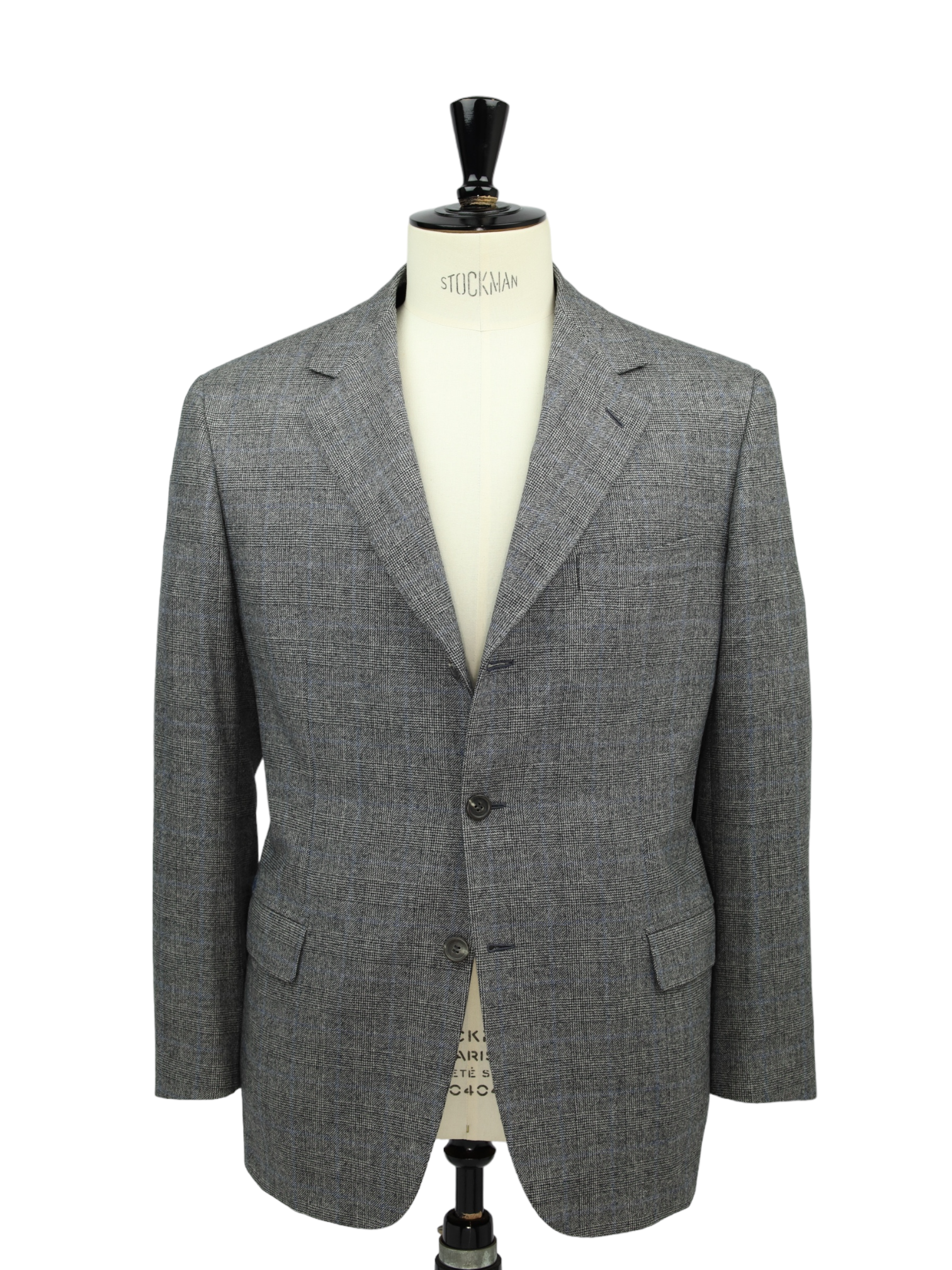
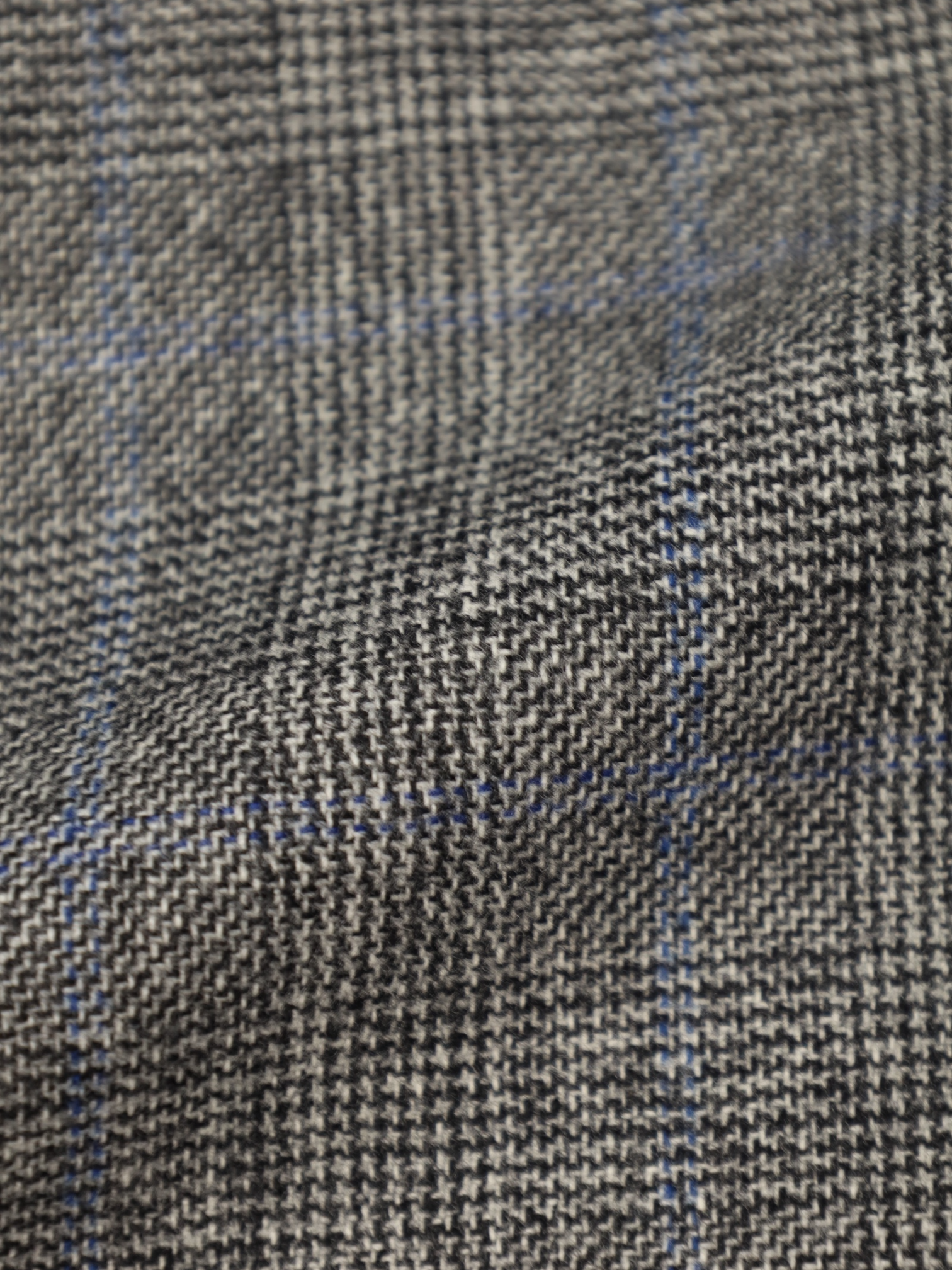
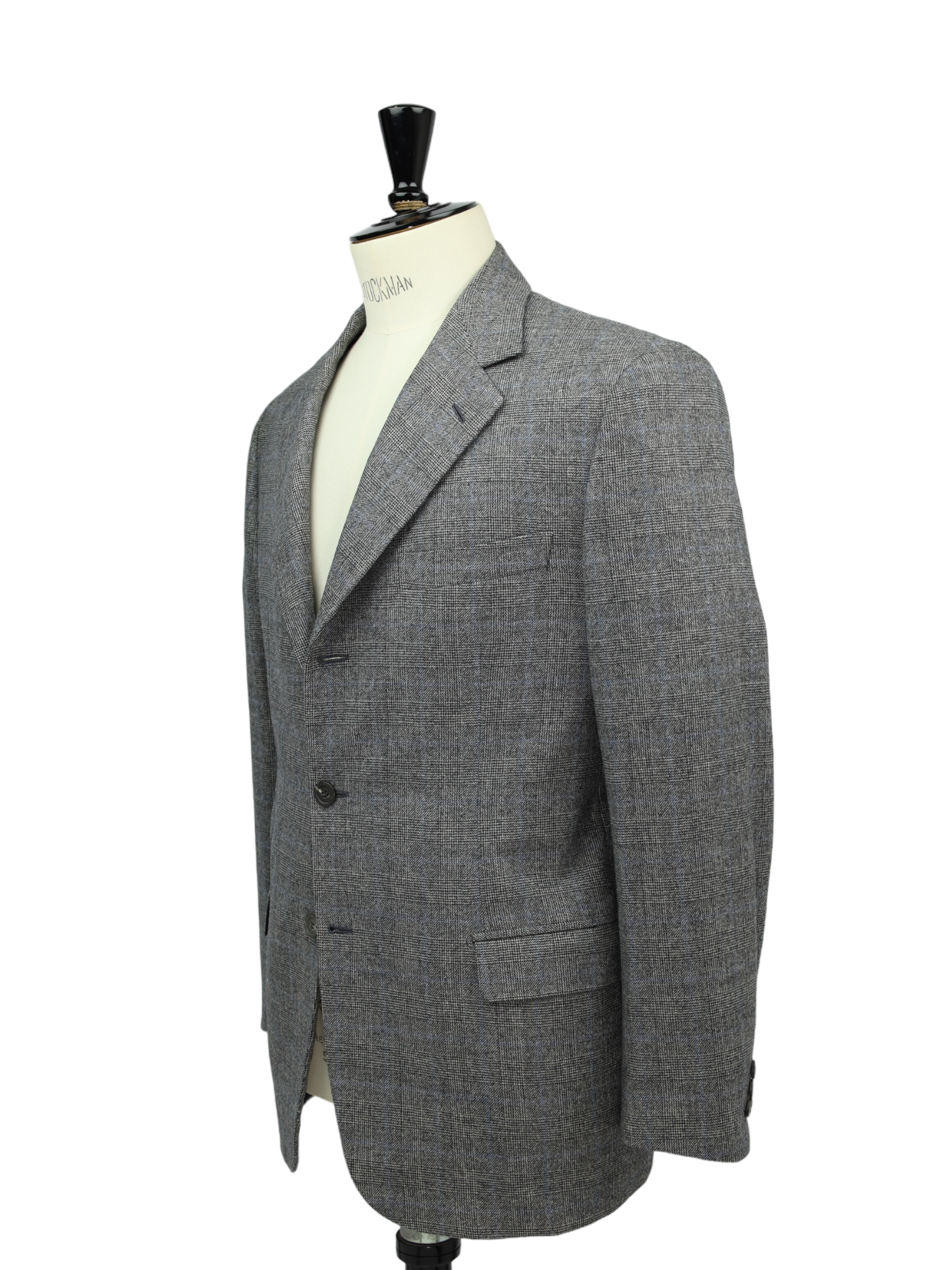
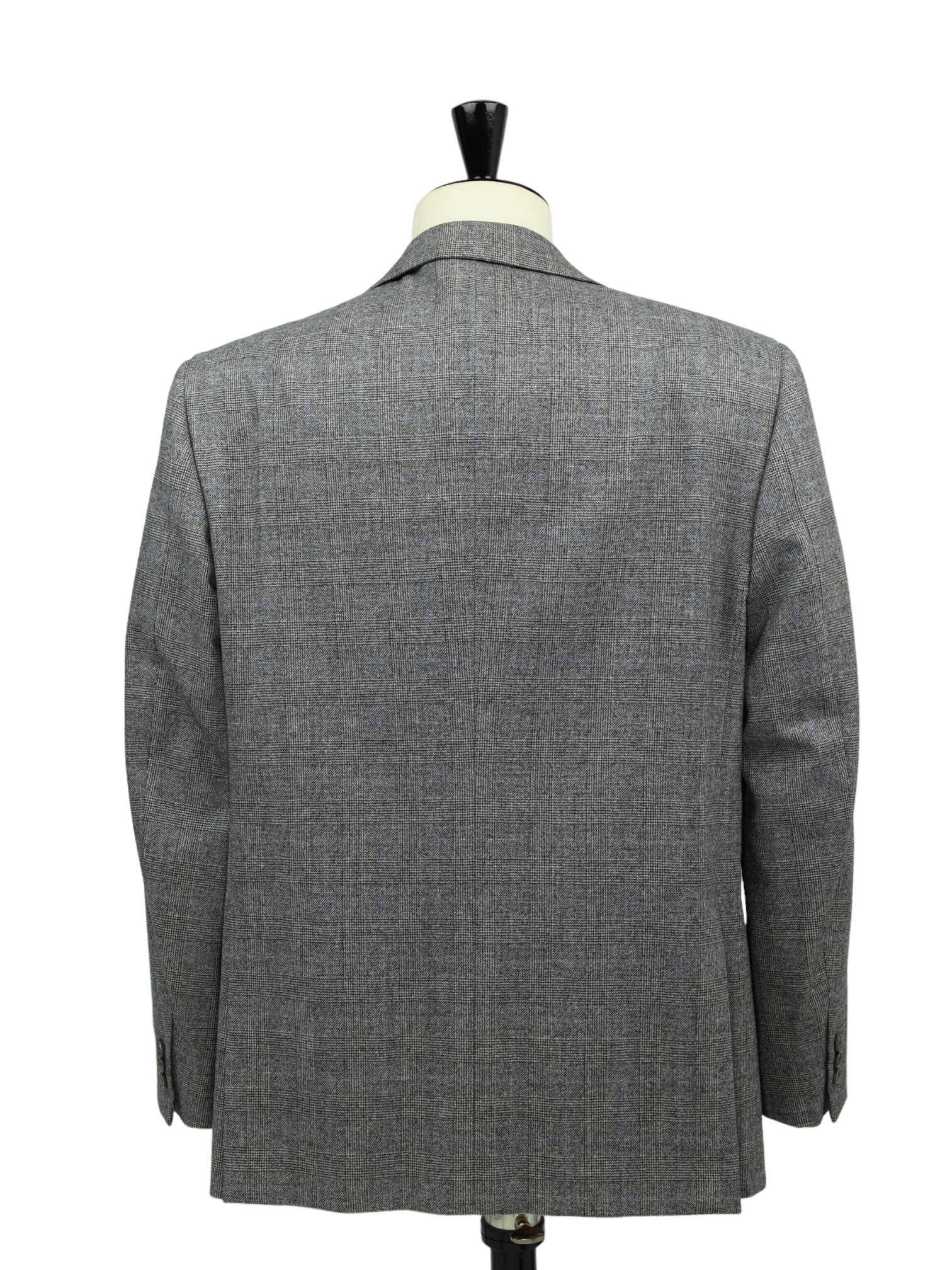
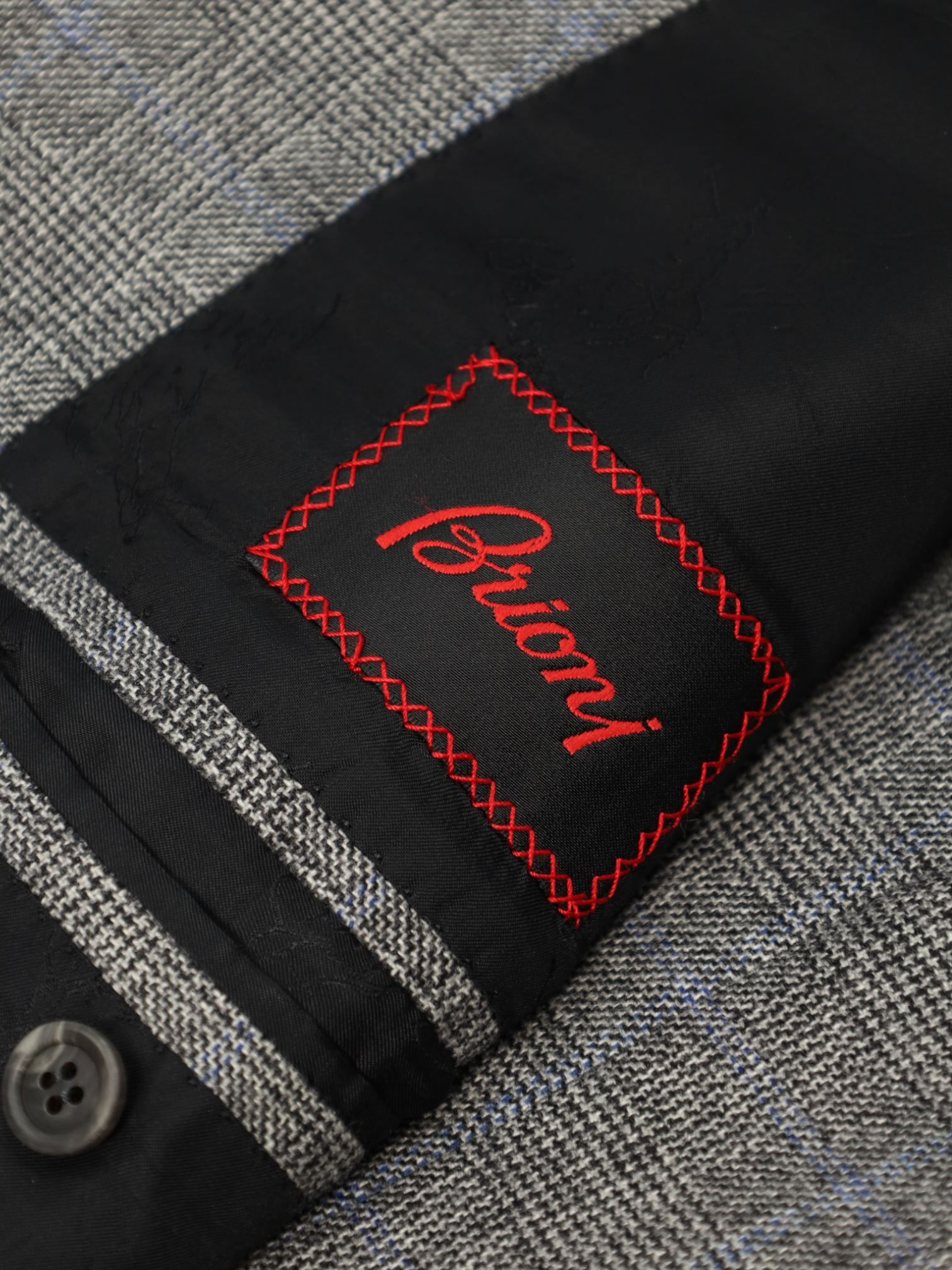
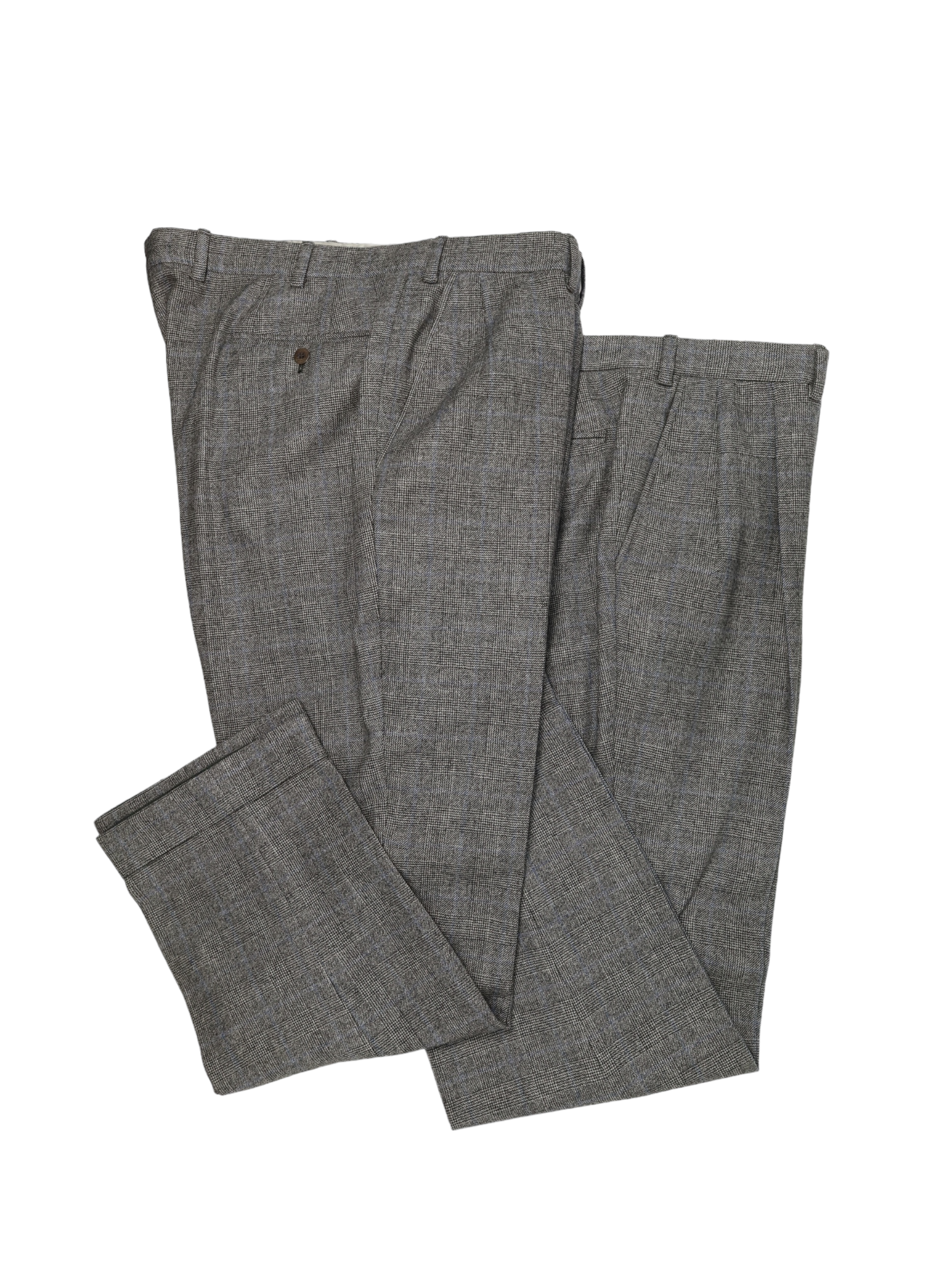
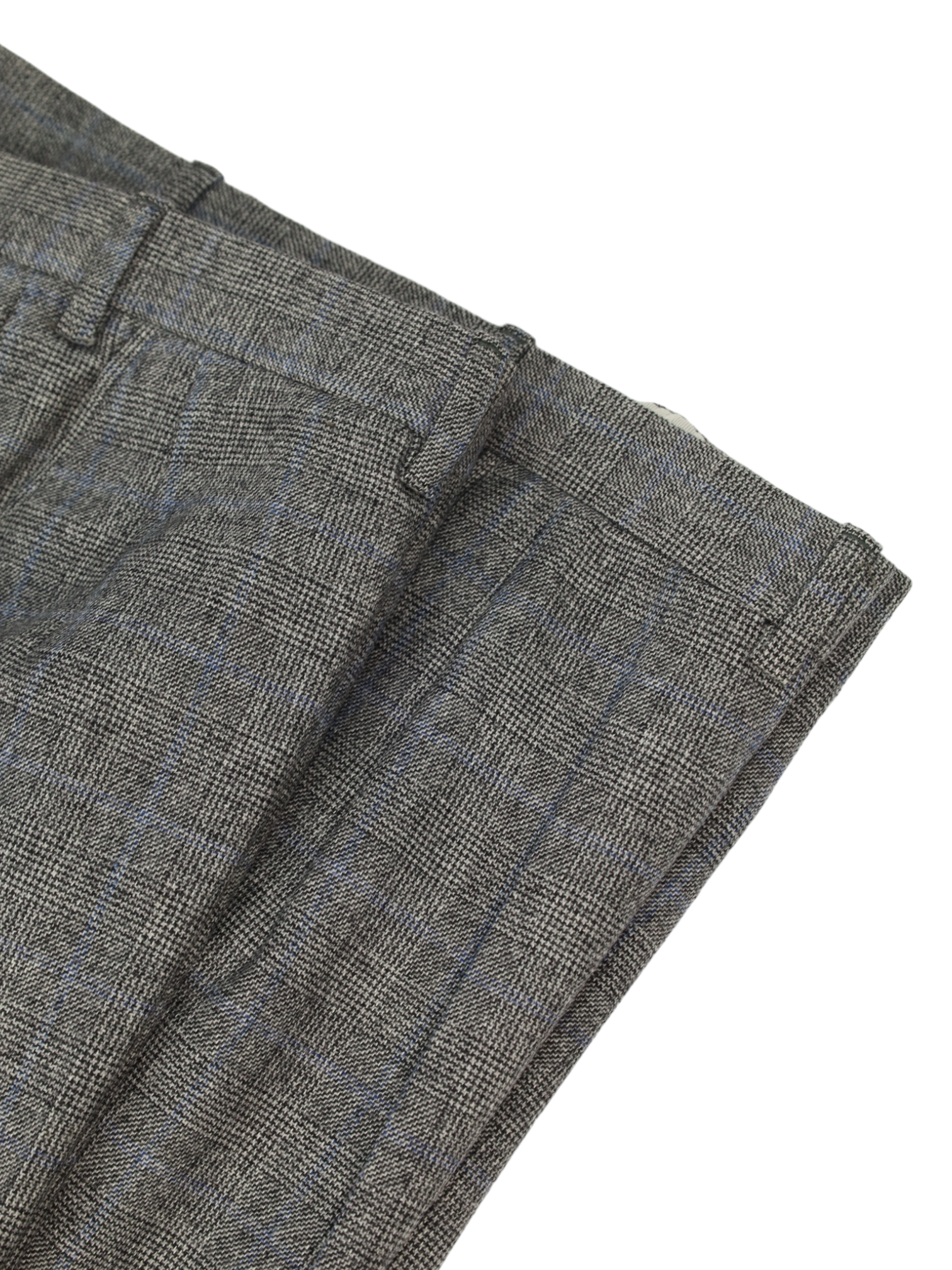
Brioni Grey Prince of Wales Check Flannel Nomentano Suit
54 IT / 44 US / Extra Large
Discover the Brioni Grey Prince of Wales Check Flannel Nomentano Suit, a paragon of sartorial excellence and versatility. Crafted from luxurious flannel, this suit features a timeless Prince of Wales check pattern in a sophisticated grey hue. It includes two pairs of trousers: one with a flat front for a modern, streamlined look, and another with pleats for a more classic, refined appearance.
Each Brioni suit undergoes a meticulous manufacturing process, involving over 220 precise steps and more than 22 hours of expert craftsmanship. This dedication to quality ensures that every aspect of the suit, from the precision of the stitching to the elegant drape of the fabric, is perfected. Discover the elaborated sartorial details below.
Composition: 100% Wool Flannel
Color: Grey
Pattern: Glen plaid
See how we measure our sartorial items
Discover the customization possibilities by visiting our tailor alteration guide
Shipping
- Complimentary shipping on orders over €200 (Netherlands), €500 (EU), and €1,000 (rest of world).
- Orders under these amounts: shipping rates depend on your country.
- Customs duties or import fees may apply and are the customer’s responsibility. The courier may charge additional fees.
Returns
- You have the right to return your order within 14 days of delivery.
- If you wish to return an item, please notify us within 48 hours of receiving your order.
- Return shipping is at the customer’s expense.
- A 10% restocking fee will be deducted from your refund for all returns.
Please carefully review all measurements and quality control notes in the listing before purchasing. Return shipments have an environmental and economic impact. For any questions or if you need help, feel free to contact us before placing your order.
General Note: While we inspect each item to ensure its quality, please note that minor imperfections may be present due to the preloved nature of the garments. We strive to represent every item accurately, but subtle signs of wear may sometimes go unnoticed. We appreciate your understanding and commitment to sustainable luxury.
Choose options







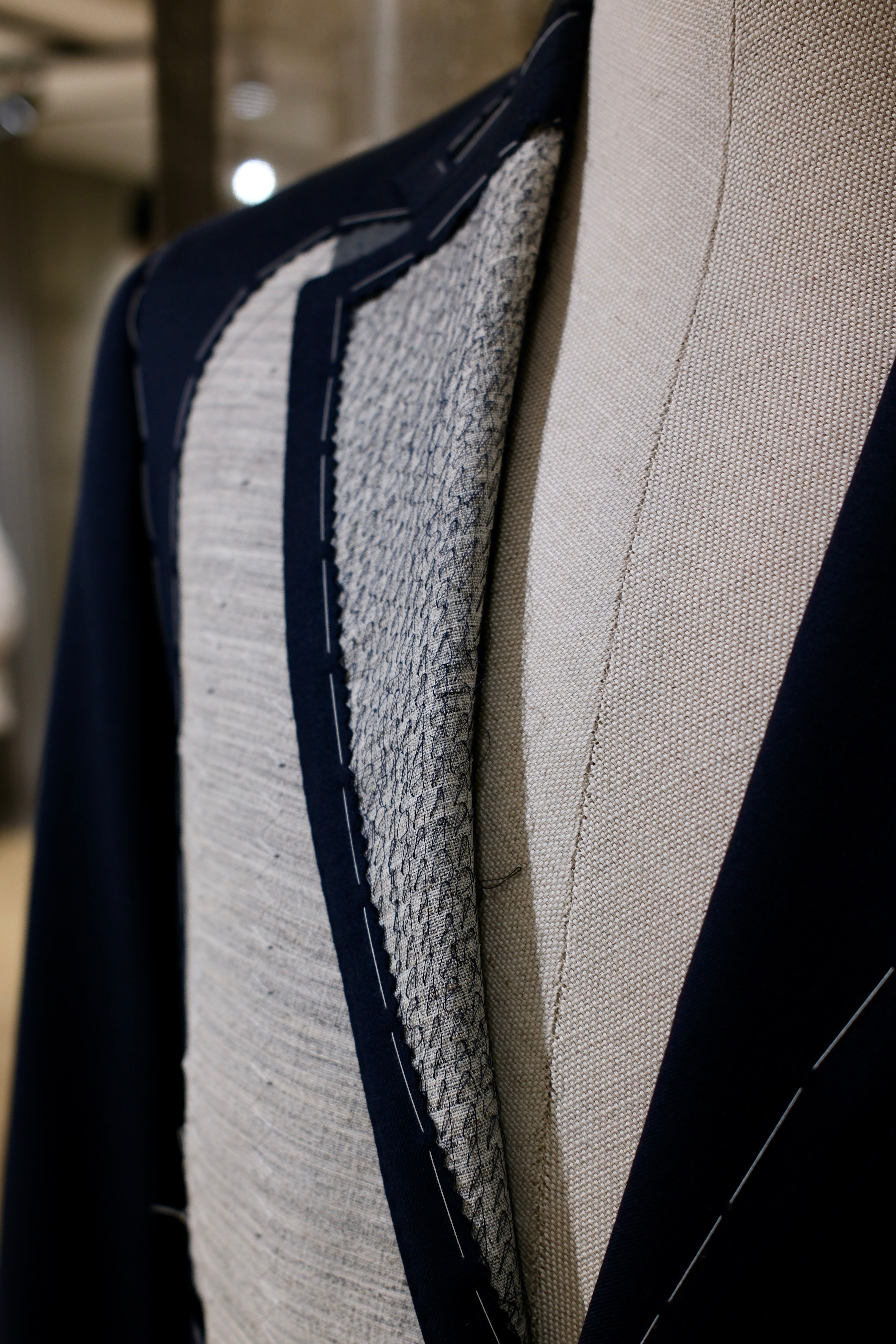
Discover the
Sartorial Details

Full Canvas Construction
A sartorial jacket - or coat - needs an interlining that will help give it shape and mold it. Canvas gives the item a tailored and crafted look. In short, it breathes life into it. Purely technical, canvas is made from either horsehair, wool, mohair or camel hair. It could also be a mix of them all, with varying thickness and weight. The canvas is stitched to the jacket, often by hand, thus making the canvas pieces 'floating' in the middle of the inner and outer cloth. This gives the jacket added flexibility. The canvas runs from the upper parts, all the way down to the end of the jacket. After you wear your canvassed suit for a while, it will begin to take your shape and look incredibly natural.
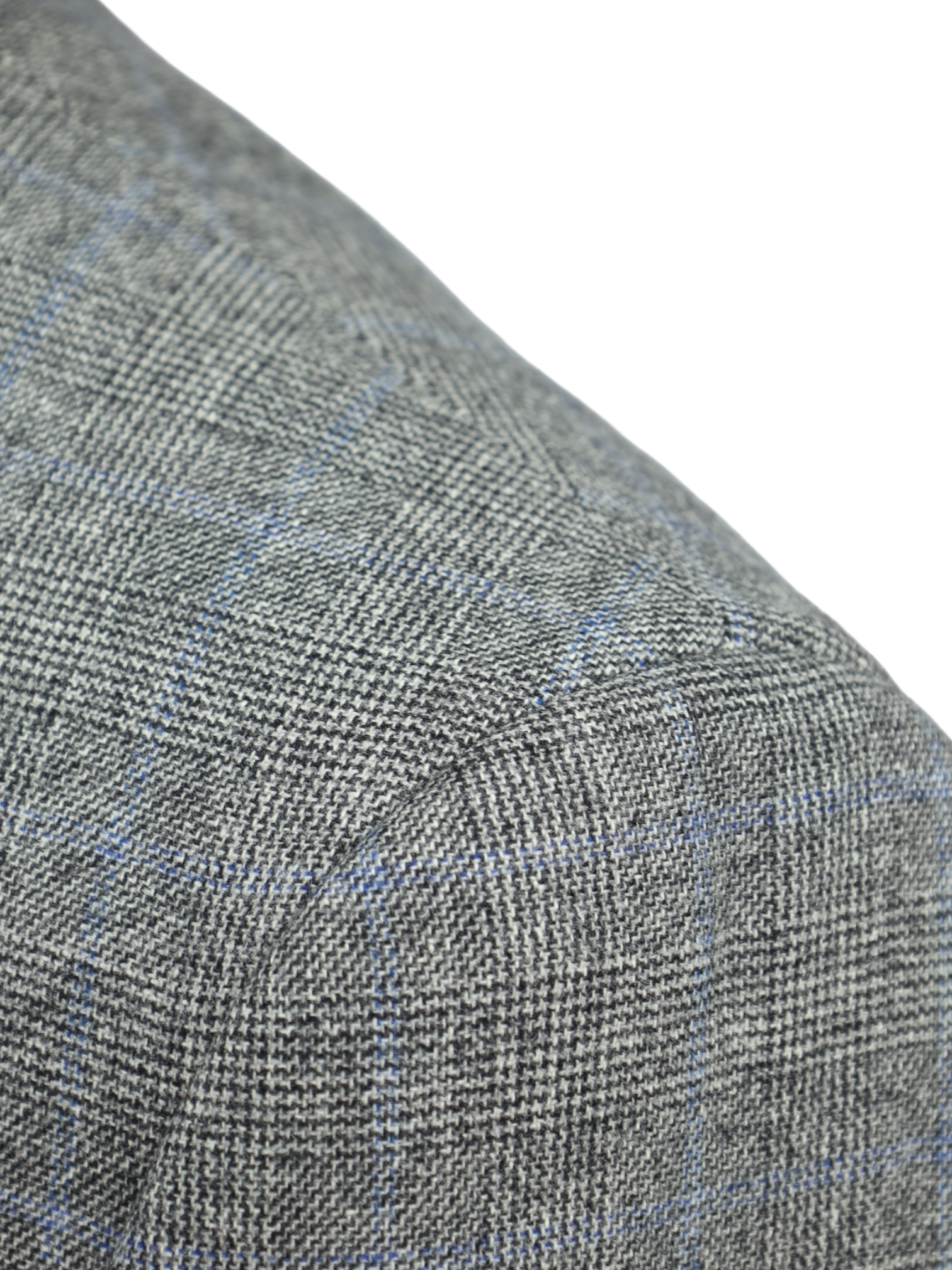
Roman Style Shoulders
Characterised by a clean, strong silhouette, the Roman style has its origins in the military and equestrian style on Savile Row. While the heavily structured, military-inspired suits with strong shoulders and stiff canvassing were fitting of English nobles, the staid style was not an adequate reflection of the Italian way of life. As Italian tailoring grew into its own, though, different styles began to develop. In Naples unstructured whimsical Neapolitan suiting took hold. In Rome, where Brioni was born, the style evolved more subtly. The structured British style was made more voluminous, body conscious, and free-flowing without losing too much of the signature Saville Row shape.
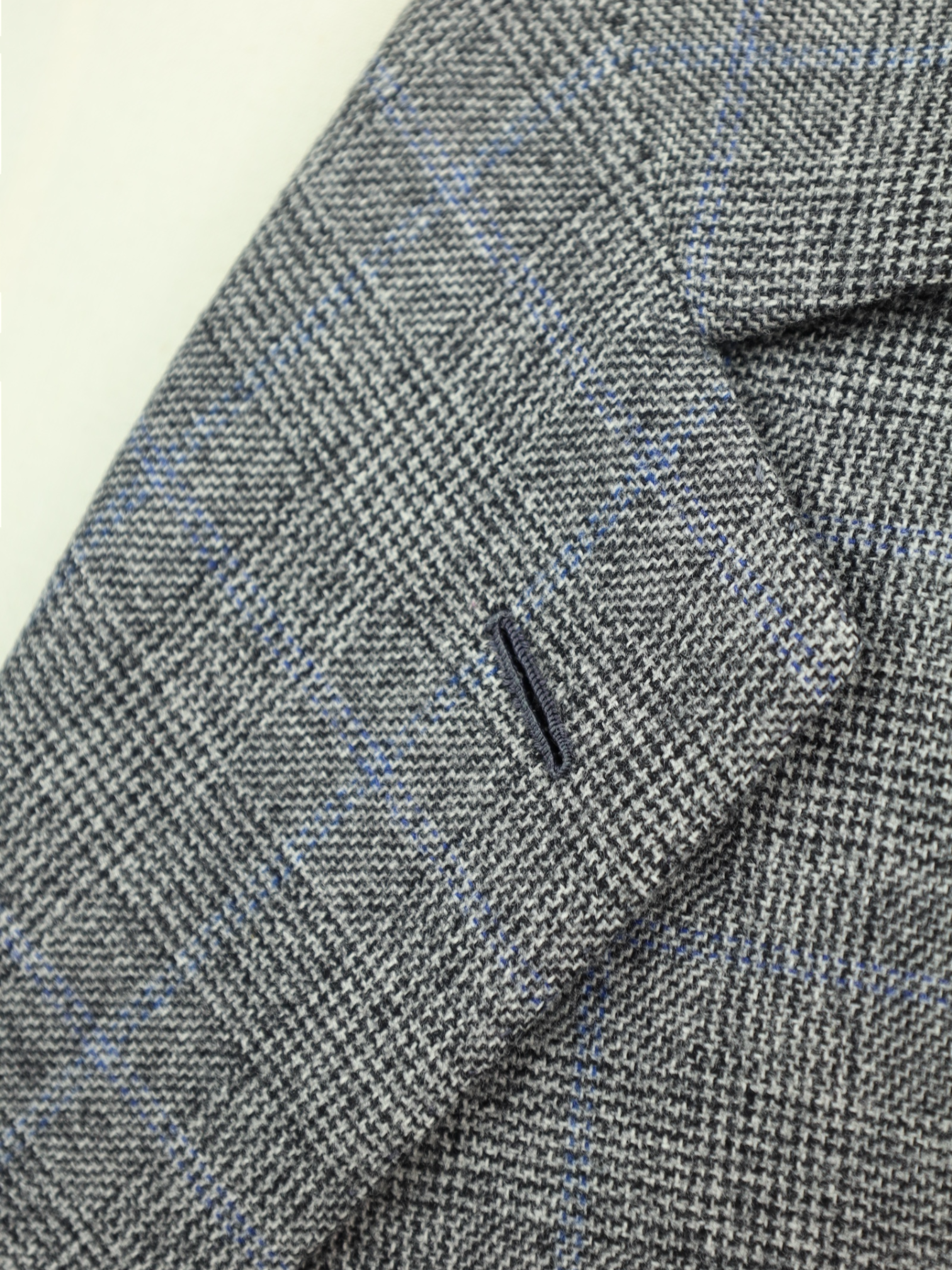
Handmade Buttonhole
Handmade buttonholes are made using a chain of knotted loops called purl stitches that make them strong and visually distinctive. It takes about five seconds to sew a regular buttonhole with a machine – a single handmade buttonhole takes about 10 minutes to sew.
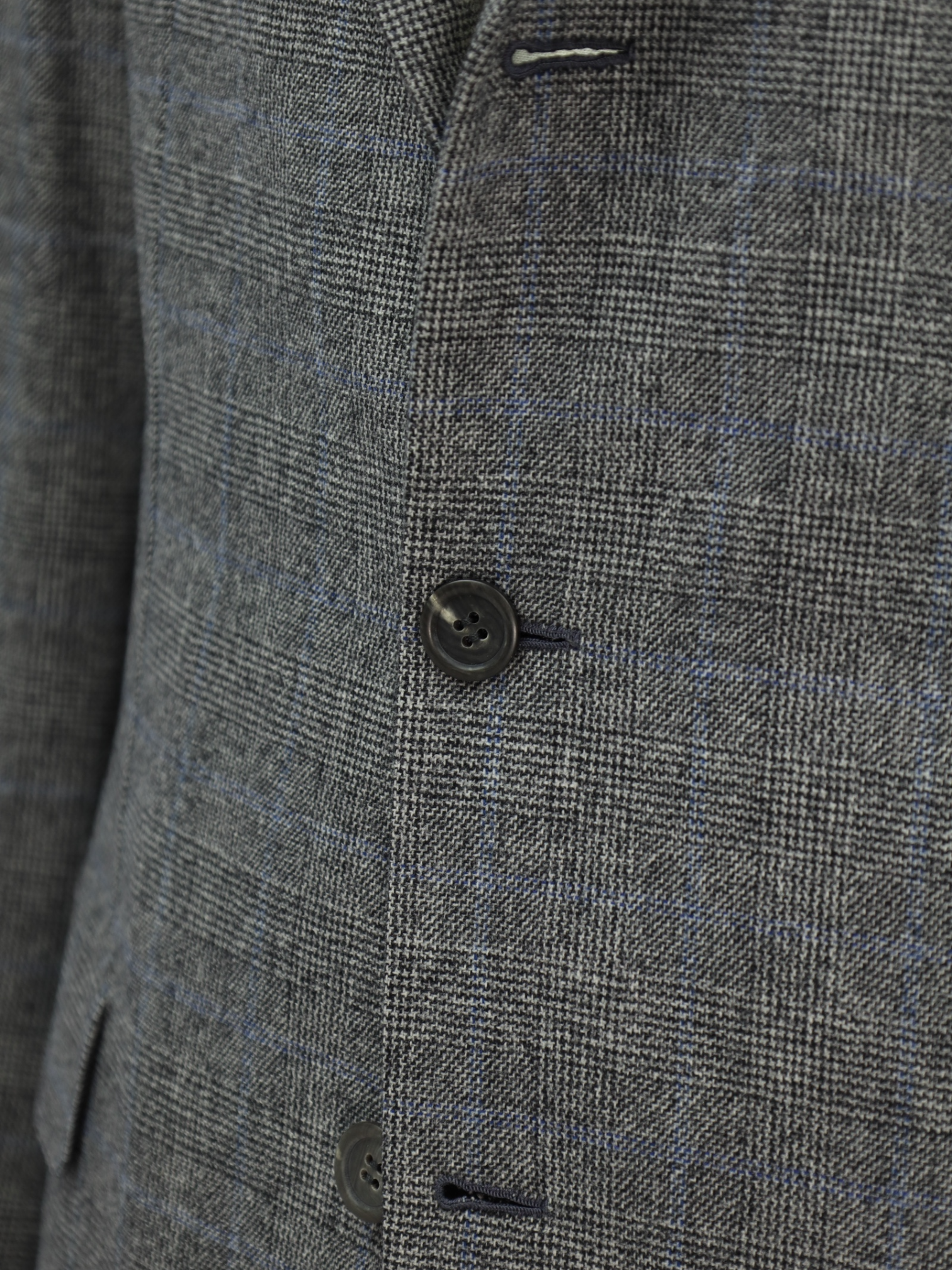
Three-Button Closure
Originating from the late 19th and early 20th centuries, the three-button suit closure evolved as a staple in menswear, striking a balance between the more casual two-button and the formal full-buttoned designs. This middle-ground choice quickly became favored for its versatility, offering a neat, elongated silhouette that stood synonymous with both business elegance and everyday sophistication. Over the years, its popularity has seen ebbs and flows, yet it remains a timeless classic in the annals of fashion history.
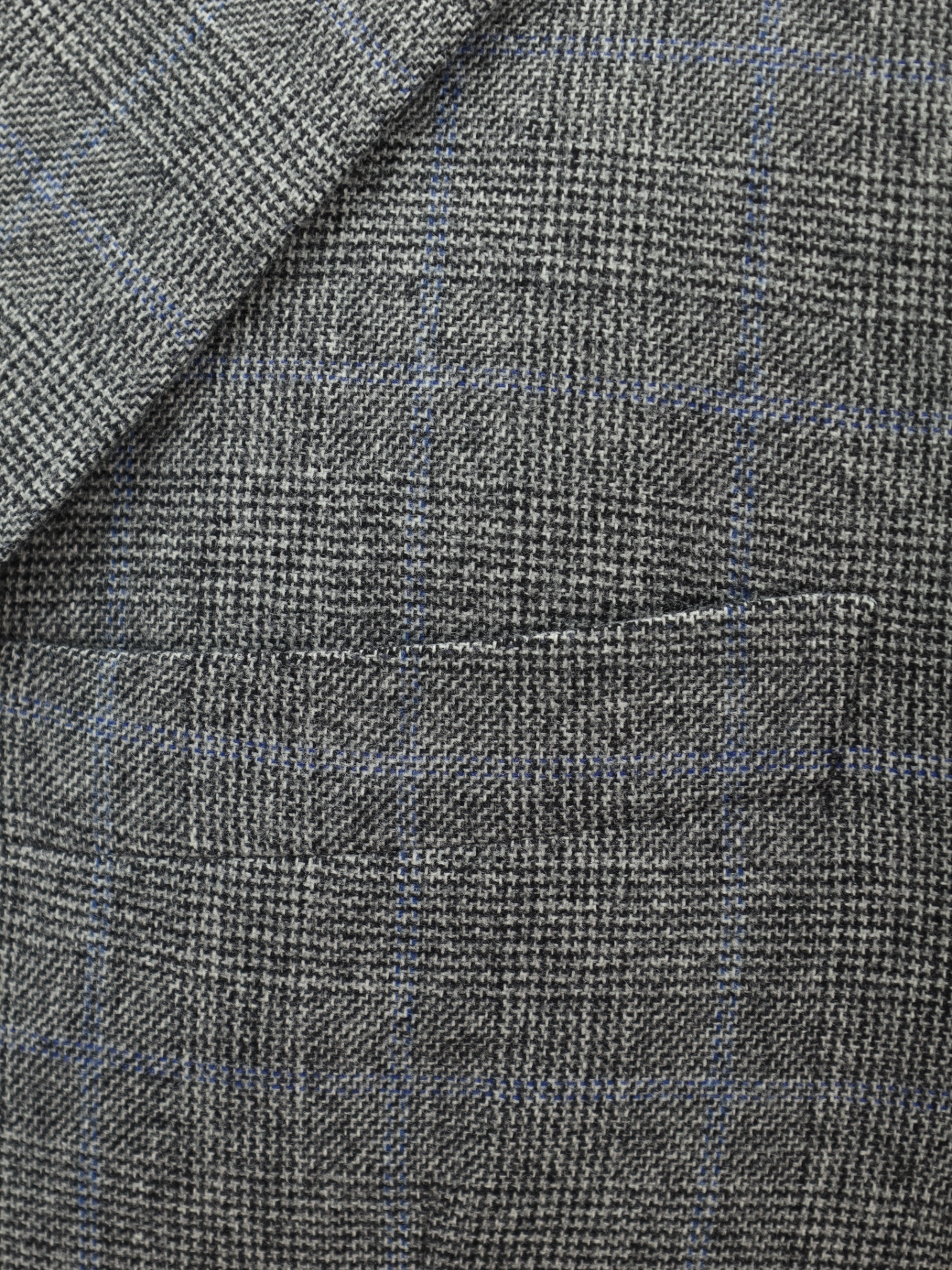
Chest pocket - Rounded welt pocket
Also known as ‘barchetta’ Italian for ‘little boat’, it is so named because this pocket floats on the chest gently angled upward, just like the bow of a sailboat. These pockets echo the lively roll of a lapel that carries the spring of canvas and natural wool, unlike machine-made chest pockets that have a more stamped-out, rectangular shape and less life.
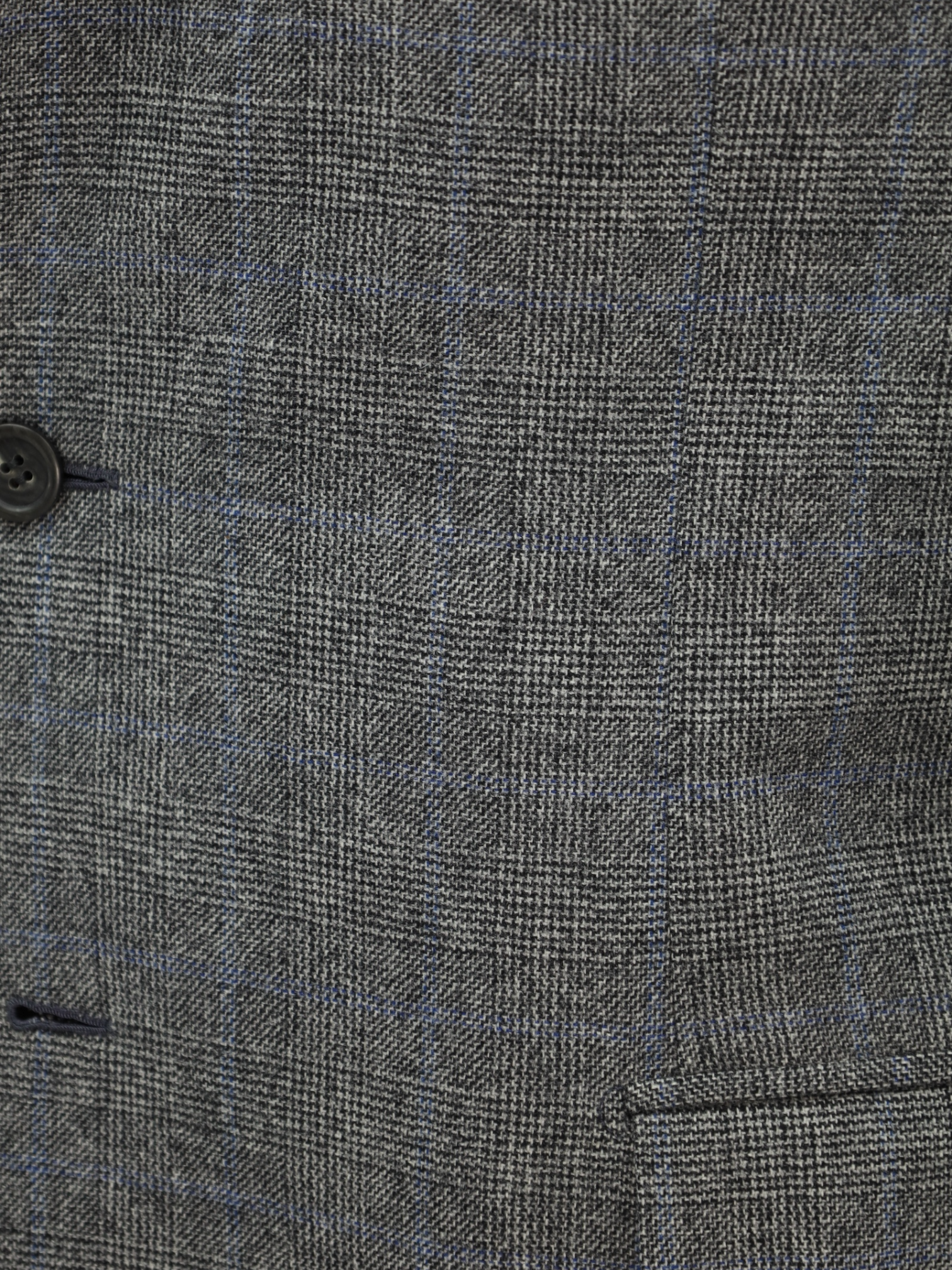
Darts
The tailors adds two darts - think of them as pinched seams - to ensure the jacket’s body achieves a slim silhouette. The process, called mezzo punto riprese, is done entirely by hand.
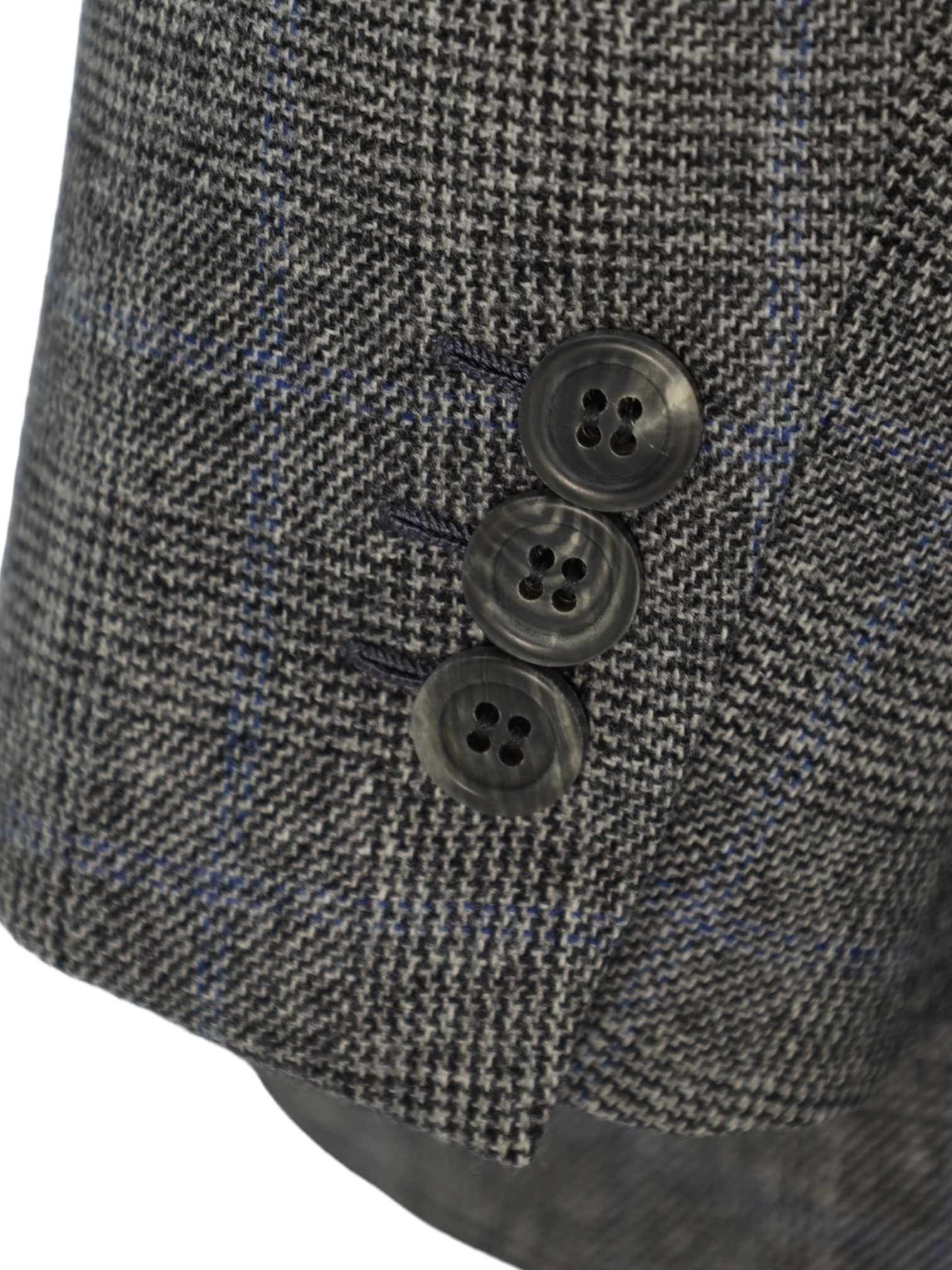
Horn Buttons
Horn buttons are prized for their quality. They are made with the finest genuine horn material, improving the appearance of the suit. And because they are so strong, you don't have to worry about them cracking or breaking.
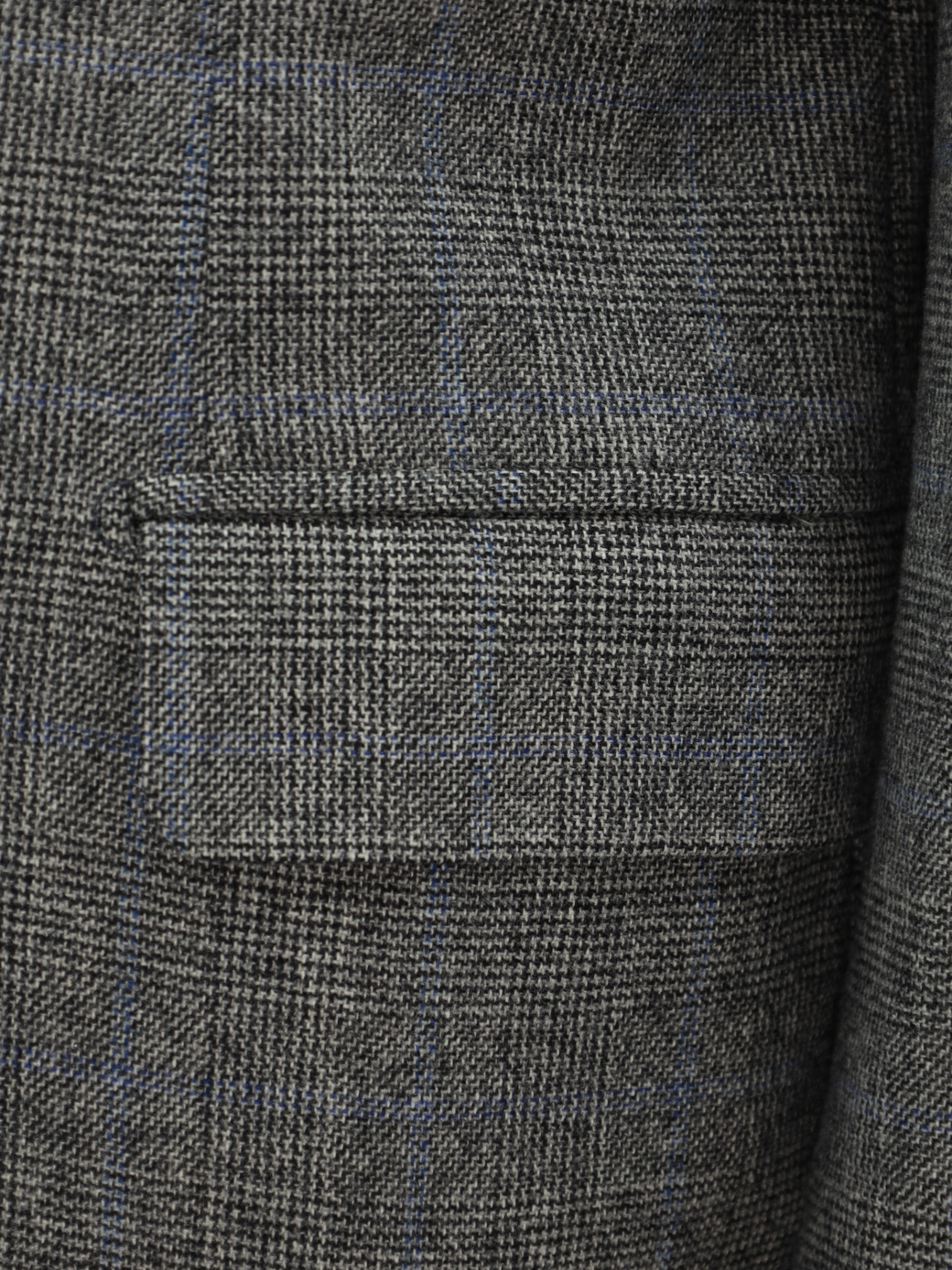
Flap Pockets
This was originally supposed to keep debris from getting into jacket pockets when worn in the country. Flap pockets occupy a sort of middle ground in terms of formality: they are the main choice for business suits, but they can also appear on sport coats as a testament to their casual origins.
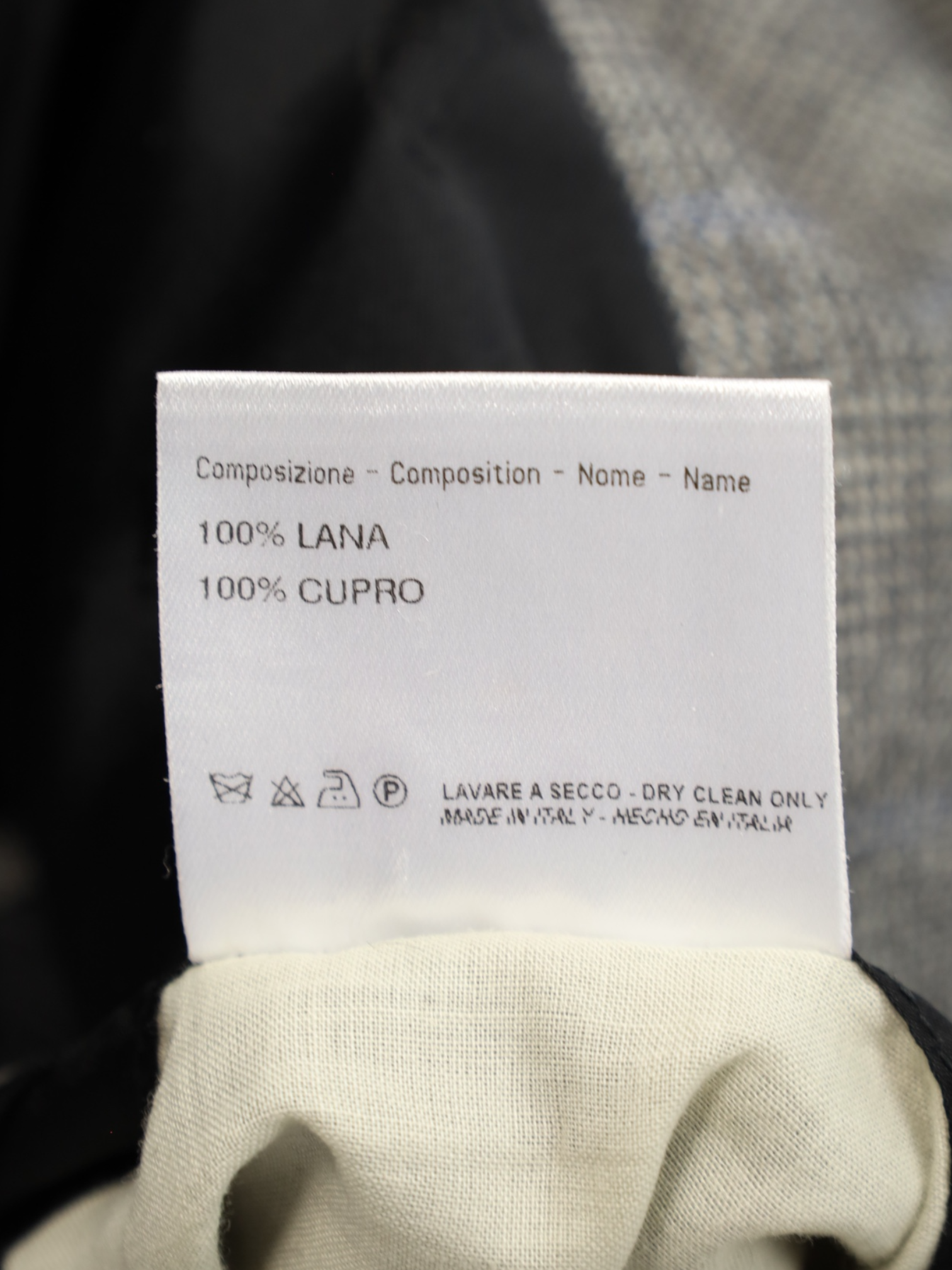
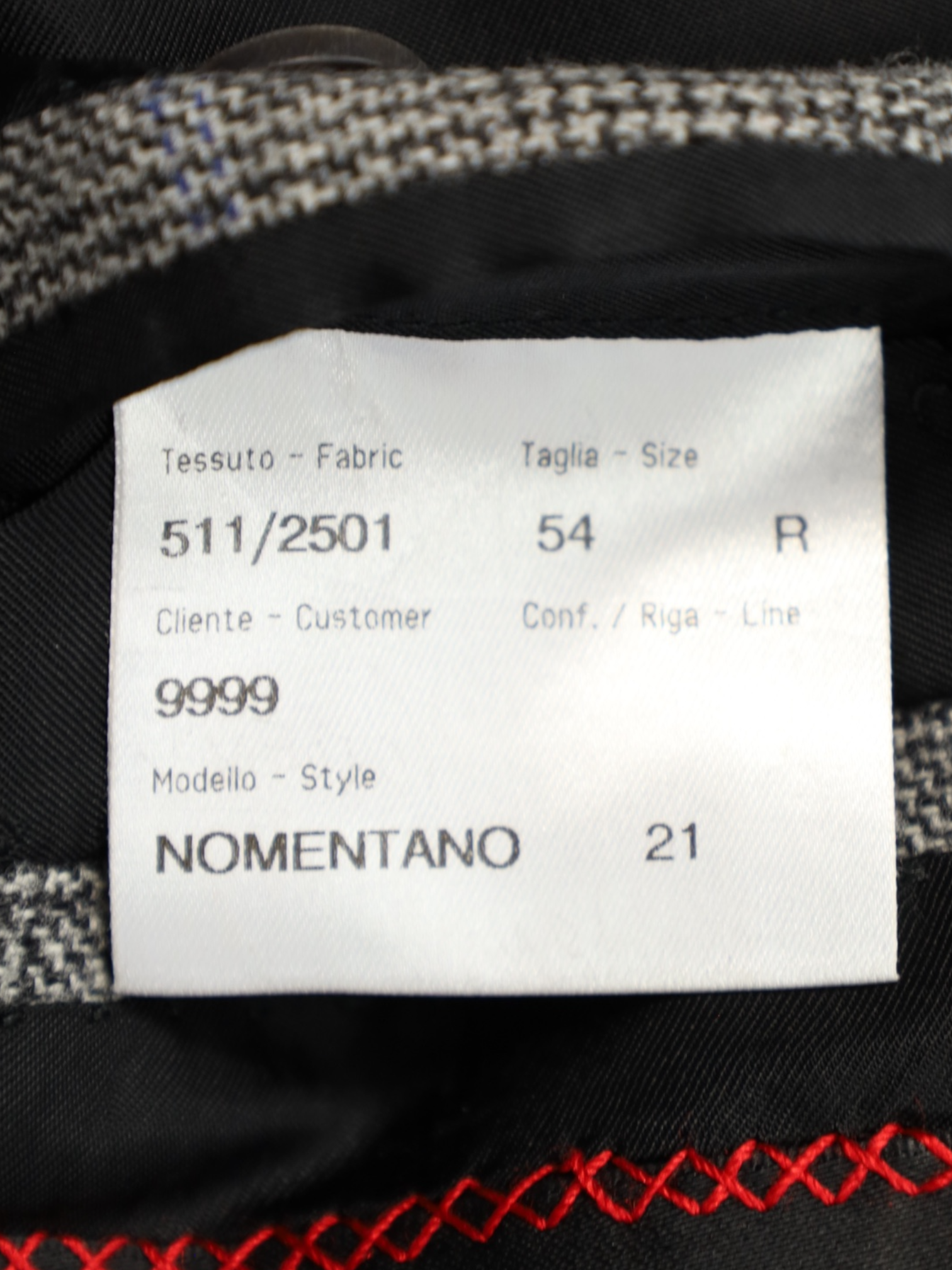
size
54 IT / 44 US / Extra Large


 Curator's Description
Curator's Description Materials
Materials